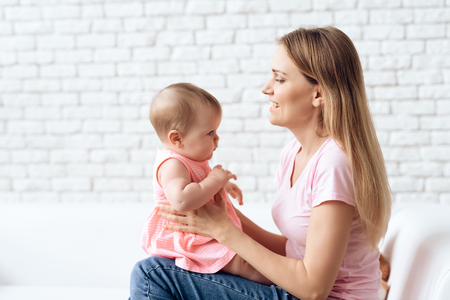Introduction to Language Development in British Babies
Language development is a fascinating journey that begins from the very first days of a baby’s life. In the UK, the process is shaped not only by biology but also by the country’s rich linguistic heritage and diverse cultural influences. British babies are immersed in a unique environment where regional accents, dialects, and even languages such as Welsh, Scots Gaelic, and Irish can play a part in early communication. This cultural tapestry provides both opportunities and challenges for language acquisition. Parents and caregivers across England, Scotland, Wales, and Northern Ireland often engage in specific communication styles, using colloquial phrases and nursery rhymes that have been passed down through generations. Understanding how these elements interact with developmental milestones helps families support their child’s growth effectively and safely. Whether you’re navigating the baby’s first coos or eagerly awaiting their first words, it’s important to recognise that every child progresses at their own pace within this uniquely British context. The following timeline will provide a month-by-month overview of key language milestones, incorporating practical tips and safety-focused guidance tailored to the UK’s distinctive cultural landscape.
Month 1–3: Early Sounds and Cooing
In the first three months, British babies begin their language journey with an enchanting array of early sounds and cooing. These initial vocalisations are crucial stepping stones in communication, as infants experiment with pitch, tone, and volume. Typically, these sounds include gentle gurgles, sighs, and the classic ‘coo’, often making their first social interactions with their caregivers. During this stage, British parents and carers play a vital role by responding warmly to these noises using familiar local expressions, helping to foster a comforting environment and support early language development.
Common Early Sounds in British Babies
| Age Range | Typical Sounds | British Caregiver Response |
|---|---|---|
| 1 Month | Crying, soft sighs | “There, there, love.” |
| 2 Months | Cooing, gurgling | “Aren’t you a chatty little one?” |
| 3 Months | Laughter-like squeals, more varied coos | “You’re having a right old natter!” |
How Caregivers Respond Using Local Phrases
British caregivers instinctively mirror and exaggerate their baby’s early sounds, creating a playful exchange that lays the groundwork for future conversations. It’s common to hear endearing terms like “little cherub” or “my duck” as adults interact with their infants. The use of such regional pet names not only reflects local culture but also reassures babies through tone and repetition. For example, in Yorkshire, a parent might say, “Ey up, little one!” while Londoners may favour “Alright, sweetheart?” This response encourages babies to continue experimenting with new sounds.
Practical Tips for Supporting Early Communication
- Engage in frequent face-to-face ‘chats’, even if your baby isn’t using real words yet.
- Mimic your baby’s coos and add new sounds to stimulate further vocal exploration.
- Use comforting British phrases and pet names to help your baby feel secure.
This early period is all about building confidence and connection. By using local language and responding attentively, British caregivers set the stage for robust language skills in the months ahead.
![]()
3. Month 4–6: Babbling and Expressing Needs
During months four to six, British babies make remarkable progress in their language journey. This stage is marked by the emergence of babbling, where infants begin to experiment with a variety of sounds. Parents across the UK may notice their babies producing repetitive syllables such as “ba-ba,” “da-da,” or “ma-ma.” Interestingly, these early sounds can subtly reflect the rhythm and melody of regional dialects heard within the home environment.
Recognising Early Babbling Patterns
Babbling serves as a key milestone, laying the foundation for later speech development. Babies often mimic the intonation and pace of their parents’ voices. In Britain, whether you’re from Yorkshire, London, or Glasgow, your baby may begin to incorporate distinct patterns from your local dialect into their babble. For example, the musical lilt of Welsh English or the clipped tones of Received Pronunciation may be echoed in your infant’s early vocalisations.
How Regional Dialects Influence Babbling
| Region | Common Babble Characteristics | Example Sounds |
|---|---|---|
| London (Estuary English) | Smoother vowel transitions; dropped consonants | “ba-ba”, “ga-ga” |
| Glasgow (Scottish English) | Rolled ‘r’s; stronger consonant endings | “ra-ra”, “da-da” |
| Liverpool (Scouse) | Sing-song intonation; elongated vowels | “la-la”, “na-na” |
| Cornwall (West Country) | Softer consonants; drawn-out syllables | “ma-ma”, “pa-pa” |
Practical Tips: Encouraging Healthy Babbling at Home
- Use Infant-Directed Speech: Speak slowly, clearly, and with exaggerated intonation to help your baby distinguish different sounds.
- Respond to Babbling: Engage in turn-taking “conversations” with your baby by mimicking their sounds and adding new ones.
- Create a Rich Sound Environment: Play nursery rhymes or read aloud using your natural accent. Exposure to a variety of words and rhythms supports robust language development.
- Avoid Excessive Background Noise: Ensure your baby can hear you clearly by minimising distractions during playtime and feeding.
This period is not only about making sounds but also about expressing needs through vocal cues. Recognising and responding to these early efforts lays a strong foundation for future communication skills tailored to both family traditions and wider British culture.
Month 7–9: Recognising Familiar Words
Between seven and nine months, British babies start to show remarkable progress in recognising familiar words and names. This stage is an exciting leap forward, as little ones begin to respond to everyday language, especially common British terms and family members’ names.
Milestones in Recognising Common British Words
| Milestone | Typical Example (UK context) |
|---|---|
| Responding to own name | Turning towards you when you call, “Ellie!” or “Jack!” |
| Recognising family names | Looking for “Mummy,” “Daddy,” “Nanna,” or “Grandad” when mentioned |
| Familiar object recognition | Reacting when you say “dummy,” “pram,” or “bottle” |
| Enjoying nursery rhymes | Bouncing or clapping to classics like “Wind the Bobbin Up” or “Incy Wincy Spider” |
Practical Tips for Everyday Conversations
- Name Everything: Use clear, simple words for objects and people around the house. For example, say “Here’s your teddy bear” or “Let’s put on your wellies.”
- Repeat Key Words: Repetition helps reinforce understanding. During bath time, use phrases like “Splash splash!” or “Wash your toes.”
- Point and Name: When out and about, point at buses, dogs, or trees and name them. This helps build vocabulary with common British terms.
- Sit Face-to-Face: Get down to baby’s eye level during playtime to encourage engagement and watch their responses closely.
- Create a Safe Conversation Space: Minimise distractions like TV or loud music so your baby can focus on your voice and facial expressions.
- Use Local Rhymes and Songs: Singing familiar tunes from CBeebies or traditional British nursery rhymes boosts both listening skills and cultural connection.
Safety Reminder
Always ensure toys used during conversations are age-appropriate and free of small parts. Supervise closely when introducing new items to prevent choking hazards.
5. Month 10–12: First Words and Imitating Speech
Typical First Words Among British Babies
By months 10 to 12, many British babies are ready to say their first real words. These early utterances are often inspired by the people and things they encounter daily. Its not unusual for a babys first word to be “mama” or “dada”, but British babies might also surprise parents with unique choices influenced by local culture and accents. For example, you may hear “ta” (a common British term for “thank you”), “baba” (for bottle), or even pet names like “doggy”.
Common Early Words Table
| Word | Meaning | British Context |
|---|---|---|
| Mama/Dada | Parents | Standard, affectionate terms |
| Ta | Thank you | Widely used in UK nurseries and homes |
| Baba | Bottle/Baby | Common in some UK regions |
| Doggy/Catty | Pets | Popular with animal-loving families |
Common Phrases and Speech Imitation
Around this age, babies start imitating not just individual words but also the rhythm and melody of phrases they hear from adults. It is typical to hear babble that mimics the flow of everyday conversation, such as “all gone”, “bye-bye”, or playful sounds like “peekaboo”. Many British parents use gentle, repetitive phrases such as “night-night”, or sing simple nursery rhymes like “Twinkle, Twinkle, Little Star” to encourage verbal imitation.
Supporting Language Growth Safely at Home
- Create a language-rich environment: Talk to your baby throughout the day about what you’re doing, using clear and simple sentences.
- Read together: Choose sturdy board books with British themes or familiar objects. Make reading interactive by pointing at pictures and naming them aloud.
- Singing and nursery rhymes: Traditional British songs like “Wind the Bobbin Up” or “The Wheels on the Bus” help reinforce language patterns safely and enjoyably.
Safety Tips for Supporting Language Development at Home
- Avoid distractions such as excessive screen time; focus on face-to-face interaction.
- Ensure toys and books are age-appropriate and free from small parts to prevent choking hazards.
- Create a calm space for learning by minimising background noise during talking or reading sessions.
Key Takeaway:
The journey from babbling to first words is both exciting and crucial. With patience, positive reinforcement, and a safe, nurturing environment, you can help your child develop strong language skills reflective of British culture and values.
6. 12 Months and Beyond: Building Vocabulary
As British babies reach their first birthday, their journey with language enters an exciting phase: vocabulary expansion. Around 12 months, many children begin to say their first recognisable words, such as “mummy,” “daddy,” or familiar household objects. This is a critical stage where supporting language development in a safe and nurturing environment becomes especially important for both learning and emotional security.
The Role of Nursery Rhymes and Classic British Stories
Traditional British nursery rhymes like “Humpty Dumpty” or “Twinkle, Twinkle, Little Star,” along with beloved classic tales such as “The Tale of Peter Rabbit,” are more than just entertainment—they are powerful tools for vocabulary building. Repetition of rhymes helps children tune in to the rhythm and sounds of English, while stories introduce them to new words, sentence structures, and the joy of storytelling.
Popular Nursery Rhymes and Their Language Benefits
| Nursery Rhyme/Story | Language Skills Developed |
|---|---|
| Twinkle, Twinkle, Little Star | Rhyme recognition, simple vocabulary (star, sky, high) |
| The Tale of Peter Rabbit | Narrative skills, names of everyday items (garden, rabbit, shoes) |
| Baa Baa Black Sheep | Counting, polite phrases (“yes sir, yes sir”) |
Practical Tips for Encouraging Speech Safely at Home
- Create a Secure Environment: Make sure your baby feels safe by maintaining a routine and providing lots of positive reinforcement during conversations.
- Speak Clearly and Slowly: Use clear pronunciation and natural intonation—avoid baby talk that could confuse sound patterns.
- Name Everyday Objects: As you go about daily routines—making tea or tidying up—name objects aloud to help your baby connect words with meanings.
- Encourage Turn-Taking: Pause after speaking to give your child time to respond, helping them learn conversational flow even before they can form full sentences.
Key Safety Considerations
- Choose age-appropriate books made from safe materials (such as board books) to avoid choking hazards.
- Avoid overstimulation by limiting background noise during storytime so your baby can focus on voices and words.
This period lays the foundation for lifelong communication skills. By celebrating every new word and engaging with traditional British stories in a secure setting, you’re giving your child the best possible start on their language journey.
7. When to Seek Support and British Resources
Every child develops at their own pace, but it’s important for parents and carers in the UK to understand when language delays may require extra attention. Recognising potential concerns early can make a significant difference to a child’s long-term communication skills and confidence.
Recognising Signs of Language Delay
While milestones offer useful guidance, some British babies might reach them a little earlier or later than others. However, certain signs could indicate a need for professional support:
| Age | Possible Concerns |
|---|---|
| 6 months | No babbling or very limited sound-making |
| 12 months | No single words (e.g., “mama”, “dada”), little response to familiar sounds or names |
| 18 months | No new words, does not point or gesture to communicate, limited eye contact |
| 24 months | Less than 50 words, difficulty following simple instructions, unclear speech even for familiar people |
| 36 months+ | Struggles to form short sentences, hard for strangers to understand most of what they say, frustration with communication attempts |
When to Seek Professional Advice
If your baby is missing several milestones or you have concerns about their hearing, understanding, or speech development, it’s advisable to seek advice without delay. Trust your instincts—parents often notice subtle differences that are worth discussing with a health visitor or GP.
Your Next Steps in the UK:
- Contact your Health Visitor: Health visitors are trained professionals who support families with young children and can guide you through next steps.
- Speak to your GP: If you’re worried about hearing loss or other medical issues affecting language, your GP can arrange further assessments.
- NHS Speech and Language Therapy Services: Your local NHS service can provide assessment and support if needed. A referral from your health visitor or GP may be required.
Reliable UK-Based Resources for Parents
| Resource Name | Description/Support Offered |
|---|---|
| NHS Speech & Language Therapy (SLT) | Official NHS information on accessing SLT services, what to expect, and links to local providers. |
| Talking Point (I CAN) | A comprehensive resource for parents concerned about speech and language development; includes milestone checkers and practical tips. |
| The Communication Trust | Information and resources for supporting children’s communication skills at home and in early years settings. |
| BBC Tiny Happy People | Free activities and advice designed specifically for UK families to boost early language skills through play. |
| Your Local Childrens Centre | Many centres offer stay-and-play sessions focused on speech, language, and social development; search via your local council website. |
Remember:
If you have any doubts about your baby’s language development, it is always better to seek reassurance and expert guidance early. The UK offers robust support systems to help every child find their voice safely and confidently.


